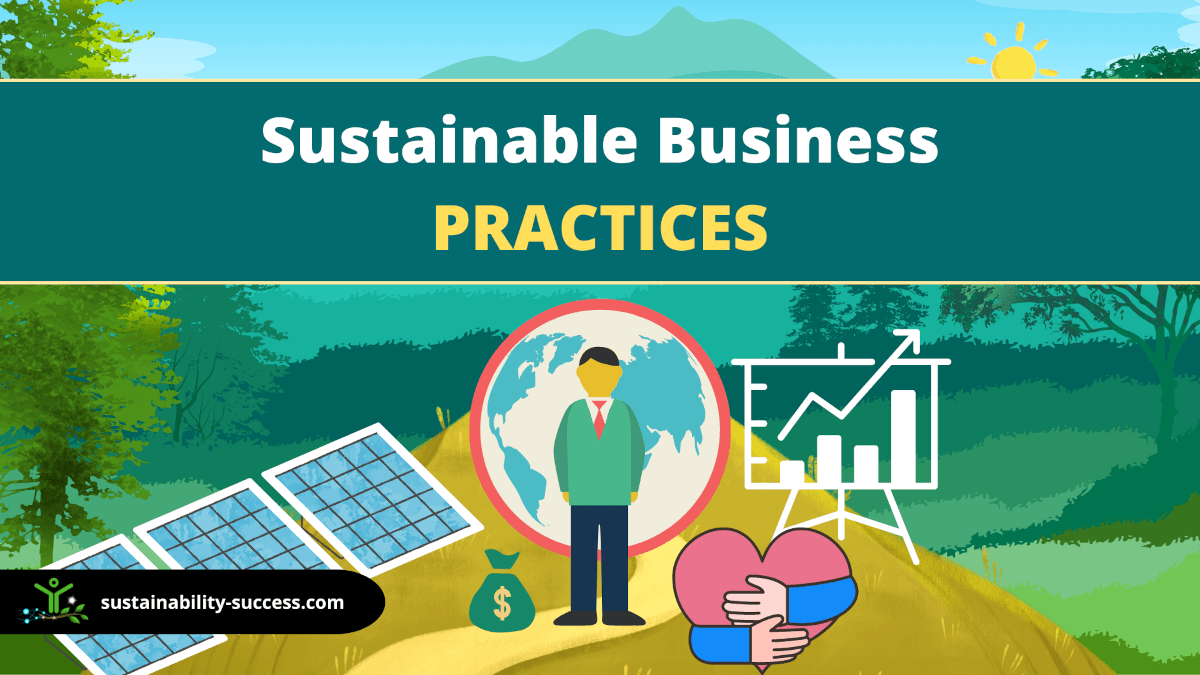
Sustainable Business Practices: Nurturing a Greener Future
As the world grapples with environmental challenges, businesses are increasingly recognizing the importance of adopting sustainable practices. In this article, we delve into the transformative impact of sustainability on business operations and the broader implications for a greener future.
The Imperative of Sustainable Business Practices
In a world confronted by climate change and resource depletion, businesses play a crucial role in mitigating environmental impact. Embracing sustainable practices is no longer a choice but an imperative for companies aiming to contribute positively to the planet and meet the expectations of environmentally-conscious consumers.
Environmental Stewardship and Corporate Responsibility
Sustainability in business practices goes beyond profit margins; it involves a commitment to environmental stewardship and corporate responsibility. Companies are acknowledging the need to integrate ecological considerations into their decision-making processes, understanding that responsible actions today pave the way for a more sustainable and resilient future.
Reducing Carbon Footprints: A Call to Action
A key aspect of sustainability is the reduction of carbon footprints. Businesses are adopting measures to minimize their greenhouse gas emissions, implementing energy-efficient technologies, and transitioning to renewable energy sources. By embracing cleaner energy alternatives, companies contribute to the global effort to combat climate change.
Circular Economy: Rethinking Resource Consumption
The concept of a circular economy is gaining prominence in sustainable business practices. Rather than following a linear model of production and consumption, businesses are exploring ways to create a closed-loop system, where materials are reused, recycled, or repurposed. This shift minimizes waste and promotes the efficient use of resources.
Social Sustainability: A Holistic Approach
Sustainability in business extends beyond environmental considerations to encompass social sustainability. Companies are recognizing the importance of fair labor practices, diversity and inclusion, and community engagement. A holistic approach to sustainability addresses not only environmental impact but also the well-being of employees and the communities in which businesses operate.
Embracing Sustainable Supply Chains
The supply chain plays a pivotal role in a company’s sustainability journey. Businesses are scrutinizing their supply chains, opting for suppliers with eco-friendly practices and ethical standards. Transparent and sustainable supply chains not only reduce environmental impact but also enhance a company’s reputation in the eyes of socially conscious consumers.
Innovative Eco-Friendly Products and Services
Sustainability drives innovation. Businesses are investing in the development of eco-friendly products and services, responding to a growing consumer demand for sustainable alternatives. From biodegradable packaging to energy-efficient technologies, these innovations not only attract environmentally-conscious customers but also contribute to a more sustainable market.
Regulatory Compliance and Sustainability Reporting
Governments and regulatory bodies are increasingly recognizing the importance of sustainable business practices. Companies are adapting to and, in some cases, leading the way in complying with environmental regulations. Sustainability reporting has become a standard practice, providing transparency and accountability in showcasing a company’s commitment to sustainable operations.
Economic Benefits of Sustainability
Contrary to the misconception that sustainability comes at a financial cost, businesses are discovering the economic benefits of embracing sustainable practices. Energy savings, operational efficiencies, and positive brand perception contribute to long-term profitability. Sustainable businesses are better positioned to thrive in a world where environmental responsibility is valued.
Sustainability in Business Practices: A Call to Collaborate
In conclusion, sustainability in business practices is not just a trend; it’s a fundamental shift toward responsible and conscientious entrepreneurship. As businesses navigate the complex landscape of environmental challenges, the call to collaborate for a greener future becomes increasingly urgent. To explore how Sustainability in Business Practices can transform your organization, visit Millennium Business. Join the journey toward a sustainable and prosperous future.